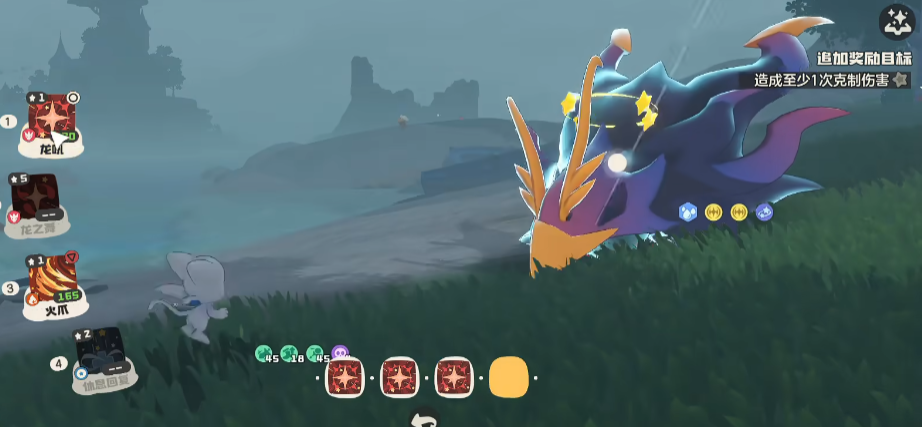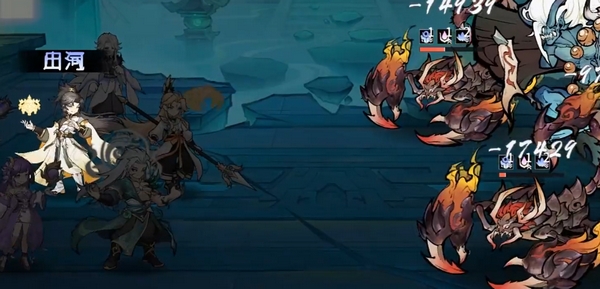In the world of Rock Kingdom, players sometimes encounter leader bosses in the wild. These bosses are quite strong and require understanding their characteristics and deploying suitable pets. Some players are still unclear about how to defeat the Little Spiky in Rock Kingdom. Below, I will share the entire process, so after reading, you'll know how to deal with it. In the story, the player is initially fishing, and when they reel in, a Little Spiky jumps out of the water.

Approach to trigger the battle; the opponent will release bubbles. First, run away and pull the boss to an open area. Here, use Star Magic to break the Little Spiky's shield. Note that after releasing several bubbles, the boss will charge at the player, so run to a higher level in advance to avoid this.

After breaking the shield, immediately throw a pet to gain a buff and attack the boss directly. Note that the characteristic of the Little Spiky is to apply a poison effect each time it uses a skill. Therefore, it's important to end the battle as quickly as possible.

Taking Abu as an example, first, use Energy Gathering, then use Dragon Dance to increase its attack and speed, and finally, use Dragon Roar to deal burst damage and stun the enemy. After stunning, follow up with three consecutive Dragon Roars to defeat the boss.

The good thing about fighting this boss is that even if the previous pet is exhausted, the damage dealt to the enemy remains. However, the enemy's shield will recover, and you need to pull the boss again to break the shield. You can use a relay strategy to wear down the boss until it is defeated.

This is a brief introduction on how to defeat the Little Spiky in Rock Kingdom. Many people find that throwing a pet ball doesn't trigger the battle because they haven't broken the boss's shield yet. Only after breaking the shield can you use a high physical damage pet to fight. After the shield is broken, the boss will be stunned for a few turns. First, buff yourself, then use attack skills, preferably those that also inflict negative status effects.



















